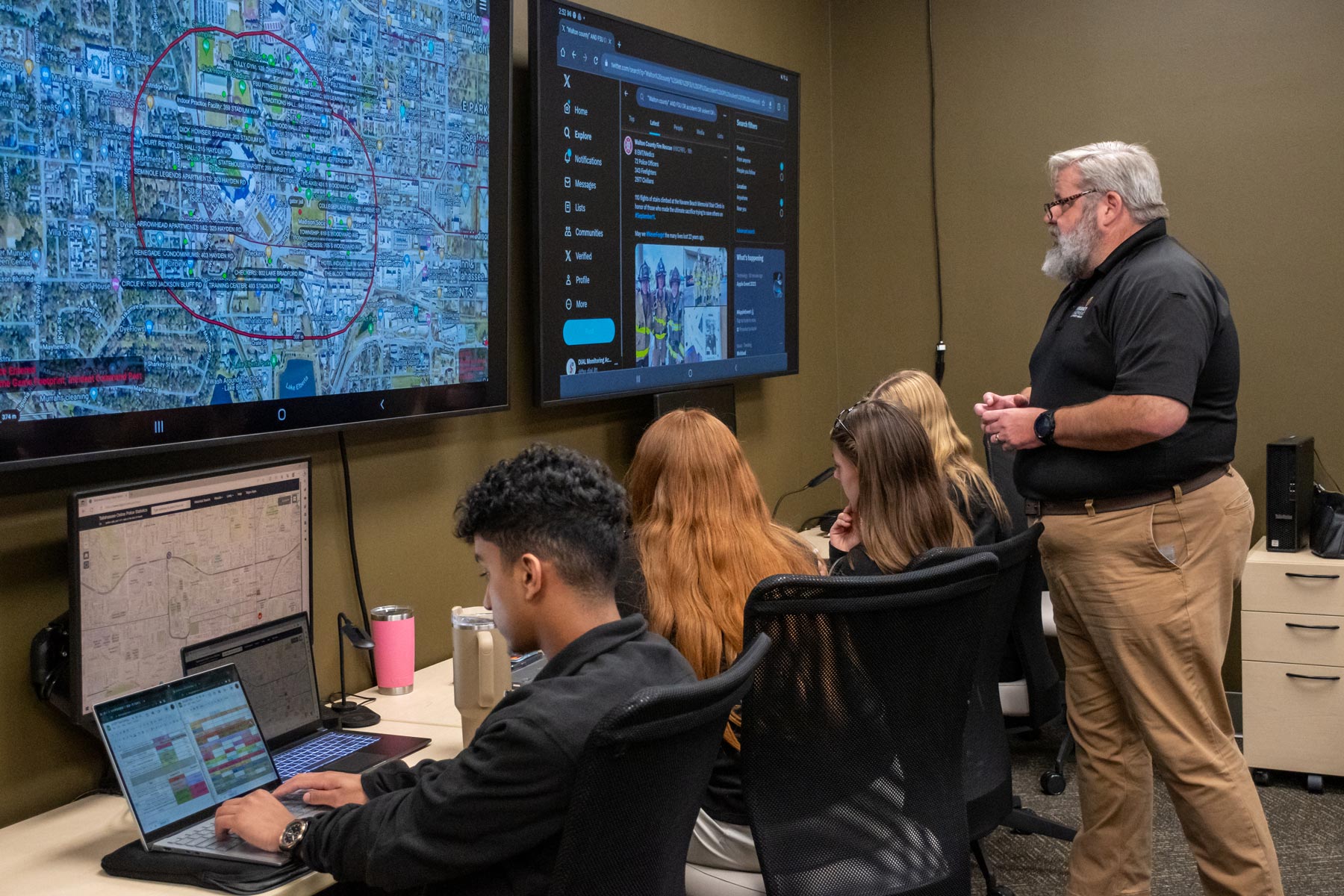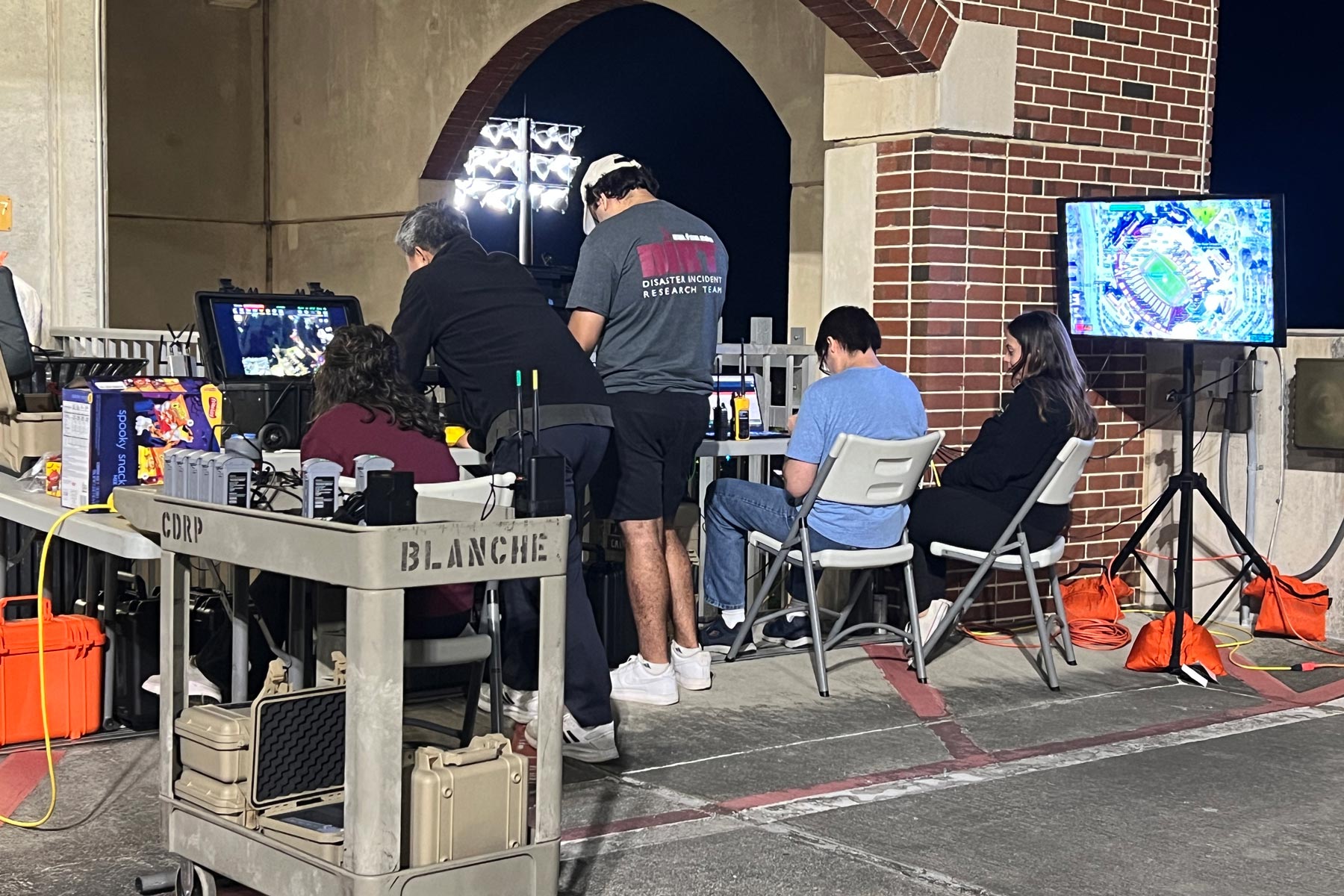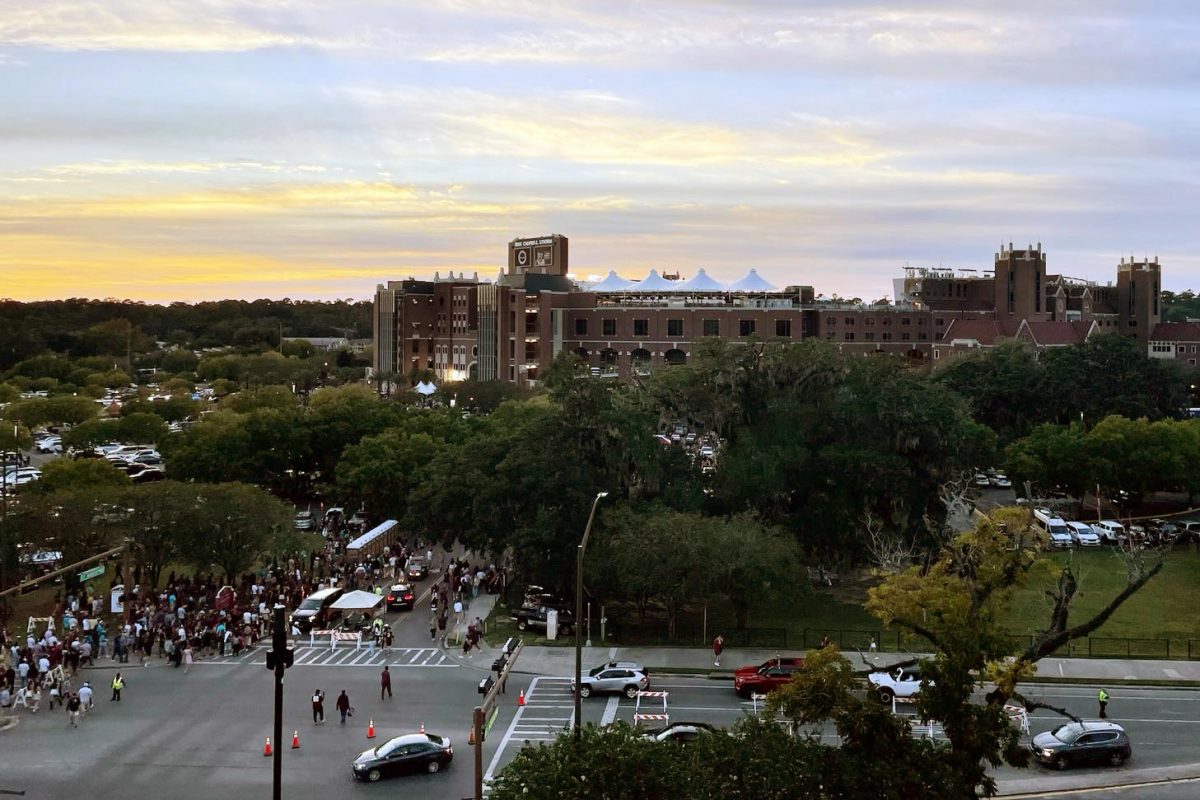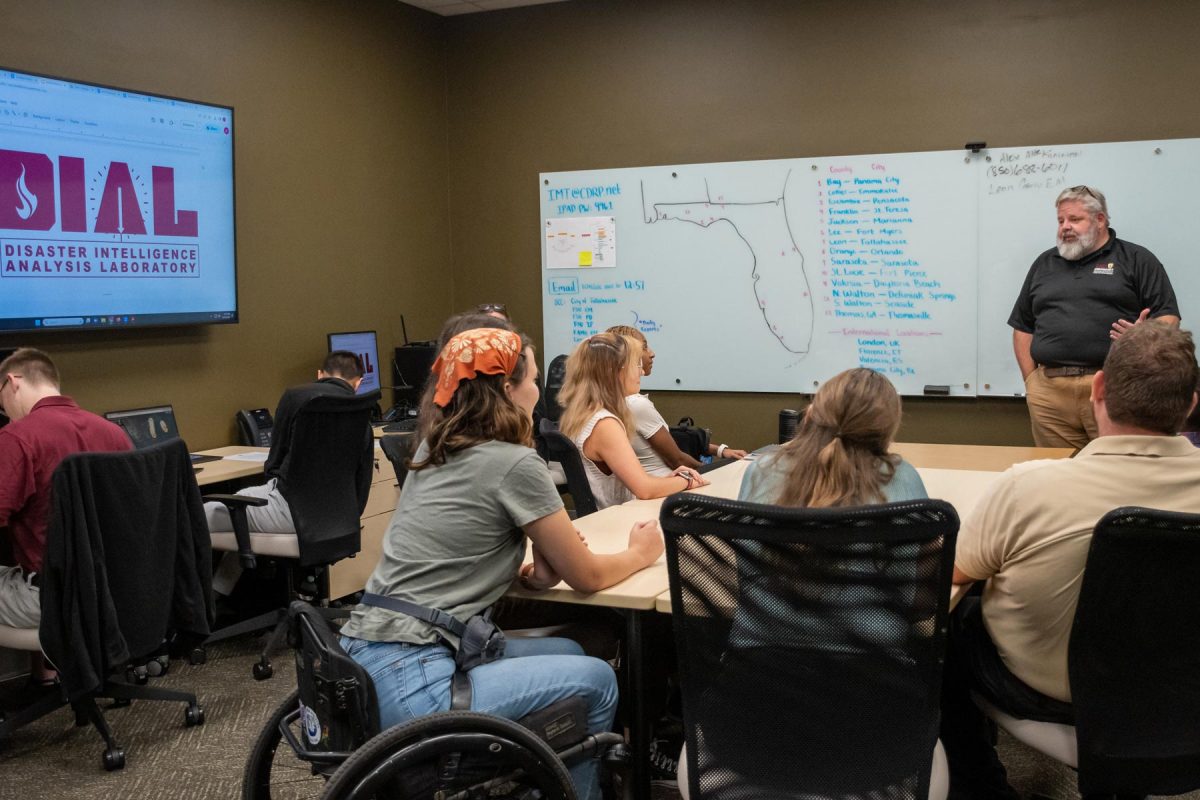On a sunny Saturday afternoon in mid-October, throngs of football fans are descending on Doak Campbell Stadium on the campus of Florida State University.
It is game day and the FSU football team is set to draw 80,000 fans to the stadium.
Guiding them all toward a safe arrival is a team of local, county and campus police and stadium security. On campus nearby, a group of FSU students from the Disaster Intelligence Analysis Laboratory (DIAL) are monitoring real-time, publicly available data and assisting law enforcement’s effort to ensure a safe and enjoyable game day for all.
Launched in spring 2022, DIAL is housed in FSU’s Emergency Management and Homeland Security program in the College of Social Sciences and Public Policy. DIAL’s mission includes giving students real-world experience supporting public safety services and emergency responders with vital information and reports.
Merrick said there’s not another program like it at another university. “It’s one of a kind,” he said. “It is not just football games. Wildfires, protests, hurricanes, gun violence — are all events these students can support.”
DIAL currently has 15 student volunteers representing a cross-section of majors, from criminology to geography.

“They are here every morning,” Merrick said. “When Hurricane Idalia hit, we used drone technology to help FAMU determine if the roofs of any of their buildings were damaged.”
One recent morning, students supported the work of a food-aid organization. On game days they use a drone to provide real-time updates on traffic and help identify in-progress incidents or potential trouble spots throughout the game.
Located in Bellamy building, the lab’s circumference is rimmed by computer monitors, while massive flat screens hang from two of its walls, offering real-time data from around the world. Students monitor a host of publicly available sources including weather outlets, social media and web traffic and use industry standard tools like Team Awareness Kit software, GIS and geo-spatial mapping programs. In the corner, helping to support their work sits a supercomputer the students affectionately call “The Kraken.”
Rob McDaniel, teaching professor in EMHS and Senior Fellow at the Center for Disaster Risk Policy, helped launch DIAL and said the experience students gain in the lab is invaluable.
“The room is run by the students,” he said. “They have taken ownership of this; managing the schedule, the deliverables. They are running it and they are crushing it.”
FSU Police Department Chief Rhonda Harris, agreed.
“The DIAL team is motivated, and they demonstrate a strong commitment to their public safety related to responsibilities,” she said. “They have become a valued partner in our game day operational successes.”
Part of McDaniel’s confidence in the program stems from its insistence on practicing the basics, specifically writing in the finely honed style of emergency reports, such as those used by law enforcement and emergency response agencies.
That skill is refined daily as students scour online resources for reports, maps, charts and graphs before synthesizing and distilling information into a cogent daily report. The report is then distributed to DIAL’s stakeholders, a list that includes more than a dozen agencies and departments across Florida, including FSU and the FSU Police Department.
Doctoral student Kate Reid leads the lab’s students and said such writing prizes clarity —and eliminating uncertainty— in equal measure. The daily report is a group effort. Students write, proof, edit, re-write and re-edit, Reid said, ensuring clarity of voice and that it meets the needs of DIAL’s stakeholders.
“The report is a completely different way to write than most students, graduate or undergraduate, are used to,” she said. “It helps promote critical thinking, writing concisely and clearly boiling down complicated problems.”
The quality of the report is crucial to maintaining a strong working relationship with stakeholders.

“That credibility and trust we have with them are built on the accuracy of the report,” she said. “The process of building and maintaining that is built every day.”
Suraj Acharya, a senior criminology major from Jacksonville said his writing and technological expertise have grown dramatically. Beyond those benefits and the camaradery, he enjoys with the DIAL team, Acharya said DIAL addresses a challenge facing many college graduates.
“You can’t get hired without experience,” he said. “So, it’s the same old question how do you gain experience without getting hired?”
McDaniel said he thinks the program goes a long way toward answering that question.
“The work they are doing here is emblematic of what’s out there in the real world and that will help them get a job,” he said.
For more information about the DIAL program, visit em.fsu.edu.





